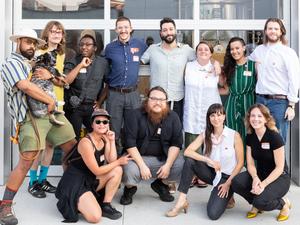
Photo Credit: Hero Images, Getty Images
Earlier this week, Rhode Island's top-funded startup Upserve announced it had acquired SimpleOrder, an inventory management platform based in Tel Aviv, Israel.
In this Q&A, we (digitally) sat down with the Providence-based restaurant management tool's chief marketing officer, Andrea Kayal, to get a few more details on the recent move.
Editor's Note: Responses have been edited for length and clarity.
- What facilitated the introduction between Upserve and SimpleOrder? The impetus for the relationship was due to the vision of the product, [one that is] allowing our restaurants to connect the whole house, creating more profits and providing remarkable hospitality.
- How is Upserve Inventory different than SimpleOrder? SimpleOrder was chosen because it's massively differentiated in the market. Here are all the differentiators and why the competition should be concerned, [as it offers]: real-time food costing, automatic inventory, online purchasing, returns and credit tracking, chain profile, central kitchen/commissary, recipe costing (understanding the profitability of every item for a well-designed menu, which has a good balance between fair prices for guests and a healthy profit margin for businesses), sales integration, waste tracking and control, purchase versus sales analysis, mobile app and accounting integrations.
- Are you disclosing the financial terms of the deal? We are not.
- How does this acquisition further Upserve’s goals as a company? We've added a feature set that connects the whole house, from the front-of-house POS to the back-of-house cost management, down to the recipe level. Now, restaurants need only go to one place to get all they need to provide remarkable hospitality.
- More and more tech companies are working to connect restauranteurs to local providers. What makes Upserve Inventory different? With automatic inventory management, restaurants can quickly and easily procure local foods much more easily through one-click purchasing from perhaps hard to reach or unique vendors. The ability for restaurants to buy local allows them to unhook themselves from the mainline distributors. This not only allows them to source local and provide true farm to table, but gives them more leverage to negotiate prices.








